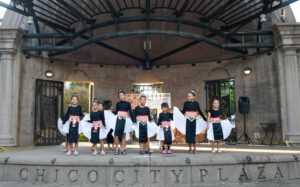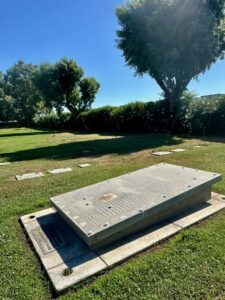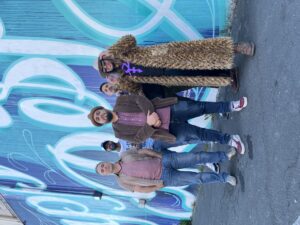On a rainy afternoon, the Paradise Symphony Orchestra and dancers from Northern California Ballet performed for six Ukrainians who were visiting this past week to learn about Camp Fire recovery.
At the end of the March 14 performance, the orchestra played the Ukrainian National Anthem. Most people watching in the Paradise Performing Arts Center stood while the song played, and the Ukrainian guests placed their right hands over their hearts. After the song finished, some of them wiped tears from their cheeks.
Trudi Angel, the former artistic director of Northern California Ballet, is hosting three Ukrainians and invited the group to the symphony rehearsal.



